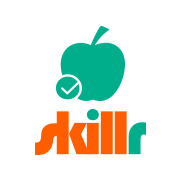Description

Mentor Max

Tinybop
Comprehensive Overview: Mentor Max vs Tinybop
As of my last update, I don't have specific information about a product named "Mentor Max" nor does it appear prominently in public sources or databases. This makes it difficult to provide a comprehensive overview directly relating to it. However, I can provide information on Tinybop, a well-known company in the educational technology sector that might relate to what you’re looking for.
Overview of Tinybop
a) Primary Functions and Target Markets:
Tinybop is primarily an educational technology company focused on developing apps that encourage children to explore and learn about the world. Their products are designed to foster curiosity and creativity in young learners:
-
Primary Functions:
- Educational Apps: Tinybop creates interactive, educational apps that cover a wide range of subjects, including science, math, and engineering. These apps are built to engage kids through exploration and play.
- The Explorer’s Library Series: This includes bestsellers like "The Human Body," "Plants," and "Simple Machines," offering in-depth explorations into various scientific concepts.
- STEM Focus: Many of Tinybop's apps are centered on STEM education, providing a hands-on approach to learning these core subjects.
-
Target Market:
- Children Aged 4-12: Tinybop targets young learners, typically those in the elementary school age range.
- Parents and Educators: The products are designed for use by both parents and educators, supporting both at-home learning and classroom activities.
b) Market Share and User Base:
- Market Share: While precise market share statistics might be proprietary or not publicly disclosed, Tinybop is recognized as a leader in children's educational apps, especially known for their quality content and engaging designs.
- User Base: Their apps have been downloaded millions of times globally, positioning Tinybop as a significant player in the edtech space. The popularity is propelled by positive reviews and the educational value perceived by parents and educators.
c) Key Differentiating Factors:
- Quality of Content: Tinybop is known for creating high-quality, research-backed educational content that is both engaging and informative.
- Design Philosophy: The apps are designed with a child-centered approach, allowing intuitive exploration without the need for explicit instructions, encouraging self-driven learning.
- Cultural Inclusivity: Many of Tinybop’s products reflect a commitment to cultural diversity, ensuring content is accessible and appealing to a broad audience.
- Interactive Learning: Unlike many educational apps, Tinybop’s offerings are highly interactive, relying on hands-on learning experiences that can adapt to different learning styles.
- No In-App Purchases: Core products typically do not have in-game purchases or advertisements, making it a safe option for children to use autonomously.
If "Mentor Max" is a newer product or a specific initiative within a niche that overlaps with Tinybop, it might require market-specific details or updates beyond publicly available information. For the most accurate insights, consulting recent press releases, official company announcements, or financial reports would be beneficial.
Contact Info

Year founded :
2011
Not Available
Not Available
Netherlands
http://www.linkedin.com/company/mentor-max

Year founded :
Not Available
Not Available
Not Available
Not Available
Not Available
Feature Similarity Breakdown: Mentor Max, Tinybop
As of my last update, Mentor Max and Tinybop are educational platforms with different orientations and target audiences. I'll provide a general feature similarity breakdown based on typical offerings from educational tools and any available information, but keep in mind that specific details might vary.
a) Core Features in Common
-
Educational Content: Both platforms likely focus on delivering educational content, designed to engage users in learning various subjects.
-
Interactive Elements: They likely incorporate interactive features to make learning more engaging, such as quizzes, games, or simulations.
-
User Progress Tracking: Both platforms might include features to track the progress of users. This helps learners see their improvements over time or helps educators monitor student progress.
-
Cross-Platform Availability: Each may have mobile and/or web applications to facilitate accessibility and usability across different devices.
-
Content Variety: They may offer a wide range of topics or subjects to cater to different interests and educational needs.
b) User Interface Comparison
-
Target Audience: Mentor Max often caters to professionals and adult learners, leading to a more straightforward, streamlined interface that prioritizes quick access to resources and materials. Tinybop focuses on children, featuring bright colors, animations, and playful design elements to engage its young audience.
-
Design Complexity: Mentor Max might use a design that emphasizes clarity and efficiency, with an emphasis on text and functional layouts. Tinybop, by contrast, is likely to have a more visually rich and interactive UI, designed to captivate children’s attention and make navigation intuitive through visual cues.
-
Navigation: Tinybop might offer more exploratory navigation, encouraging kids to click, discover, and learn intuitively. Mentor Max may prioritize direct pathways to content, structured around learning paths or competency frameworks.
c) Unique Features
-
Mentor Max:
- Mentorship Integration: May offer mentorship or coaching features, connecting users with professionals for personalized guidance and advice in their learning journey.
- Career-Focused Resources: Might provide resources and tools specifically designed to enhance career skills or prepare users for professional advancements.
-
Tinybop:
- App-Based Exploratory Learning: Unique apps that focus on exploratory learning, where each app delves into a specific topic or theme, encouraging curiosity-driven interaction.
- Child-Centric Design: Environments specifically tailored for early childhood education, with features that harness children's natural inquisitiveness in STEM or artistic domains.
Overall, while both platforms serve educational purposes, Tinybop is distinctly geared towards a younger audience with a focus on exploratory and playful learning, while Mentor Max likely emphasizes career development and professional growth.
Features

Personalized Mentorship Programs
Interactive Learning Tools
Community and Networking

Parental Engagement
Multi-Platform Availability
Interactive Learning Experiences
Best Fit Use Cases: Mentor Max, Tinybop
Mentor Max
a) Types of Businesses or Projects for Mentor Max:
- Corporate Training Programs: Mentor Max serves well in organizations emphasizing employee growth and skill development. Companies that need structured mentorship frameworks for leadership development, upskilling, or onboarding might find it particularly beneficial.
- Educational Institutions: Universities or colleges looking to provide mentorship opportunities for students can leverage Mentor Max to match students with faculty or industry professionals.
- Professional Associations: Organizations forming part of an industry body or professional association can use Mentor Max to promote member engagement, facilitate career advancement opportunities, and enhance community building.
- Startups and Accelerators: Ideal for startups or business accelerators that want to equip mentees with seasoned industry insights through targeted mentorship.
b) Scenarios for Tinybop:
- EdTech Solutions for Younger Audiences: Tinybop’s primary target is young learners, making it optimal for projects aiming to engage children with educational content. This includes subscription-based learning platforms or apps that offer school curricula-based learning.
- Interactive Learning Modules: Schools or educational content creators looking to develop interactive modules or simulations to complement classroom learning.
- STEM Education Initiatives: Non-profits or educational foundations focusing on increasing interest in STEM fields among young students would find Tinybop's engaging approach beneficial.
- Parental Engagement Products: Products designed to involve parents in their children's learning processes through interactive, fun, and educational activities.
d) Catering to Different Industry Verticals or Company Sizes:
-
Mentor Max tends to cater towards medium to large organizations across various industries like technology, finance, healthcare, etc., due to its structured approach to mentorship and development. The platform can support a wide array of professional development needs and scales well with company size.
-
Tinybop is geared more towards the education sector, particularly focusing on children’s interactive learning. Therefore, it finds its niche among educational technology firms, schools, and non-profits dedicated to child education. It suits small to medium-sized companies or projects focusing on content development or enrichment programs for young learners.
By catering to these distinct use cases, Mentor Max and Tinybop effectively meet the needs of diverse industry verticals, whether it's enhancing professional development in corporate settings or fostering educational engagement among young minds in the learning sector.
Pricing

Pricing Not Available

Pricing Not Available
Metrics History
Metrics History
Comparing undefined across companies
Conclusion & Final Verdict: Mentor Max vs Tinybop
To determine which product offers the best overall value between Mentor Max and Tinybop, we need to assess the unique advantages and possible drawbacks of each product and provide guidance for potential users.
Conclusion & Final Verdict
a) Best Overall Value
The best overall value will depend on the specific needs and preferences of the user. Mentor Max is typically suited for users seeking a more structured, mentorship-based learning experience, while Tinybop excels in providing interactive and exploratory educational content for children.
b) Pros and Cons
Mentor Max:
Pros:
- Personalized Learning: Mentor Max often provides a more personalized and direct educational experience, with guidance tailored to individual learning paths.
- Mentorship-Based: This approach often helps in skill development that aligns with career or advanced studies, offering insights from experienced mentors.
- Structure: It may offer a more structured program, which can be beneficial for those who prefer a guided learning environment.
Cons:
- Limited Interactivity: It might lack the engaging, interactive elements that can help maintain a young user's interest in educational material.
- Higher Cost: Personalized, mentorship-driven platforms can be more expensive than other educational tools.
- Age Appropriateness: This platform may not cater to younger audiences, focusing instead on older students or adults.
Tinybop:
Pros:
- Interactive and Engaging: Tinybop's apps are known for being visually engaging and interactive, appealing to younger learners.
- Affordable: Generally, Tinybop offers its applications at a lower cost compared to structured programs like Mentor Max.
- Variety of Topics: Tinybop covers a wide range of scientific and environmental topics, catering to children's curiosity and varied interests.
Cons:
- Less Personalized: While interactive, the learning experience is less personalized and doesn't involve direct mentorship or guidance.
- Broad Focus: It may not offer the same depth or focus on skill mastery as a mentorship-based program.
- Limited for Older Audiences: Tinybop is primarily designed for children, which may not serve older students or adults seeking higher-level learning.
c) Recommendations for Users
-
For Parents and Guardians Seeking Child-Friendly, Interactive Learning: Tinybop is the more suitable choice for young children with its engaging, exploratory content that fosters curiosity and early learning across diverse subjects.
-
For Adolescents or Adults Who Want Structured, Career-Oriented Learning: Mentor Max would be preferable for users looking for structured guidance and mentorship in skills acquisition and career development.
-
Consider Blending Both: If budget allows, using both applications could provide the best of both worlds—interactive foundational learning from Tinybop and tailored, advanced learning from Mentor Max.
Ultimately, users should consider the age and interests of the learner, the learning goals, and their budget when deciding between Mentor Max and Tinybop.
Add to compare
Add similar companies



